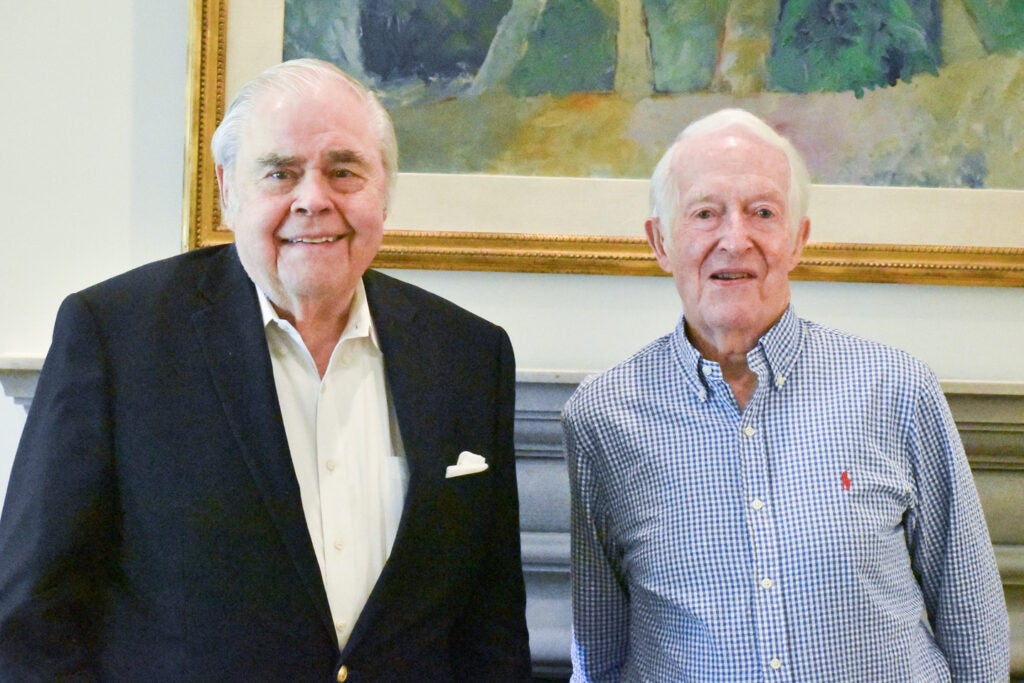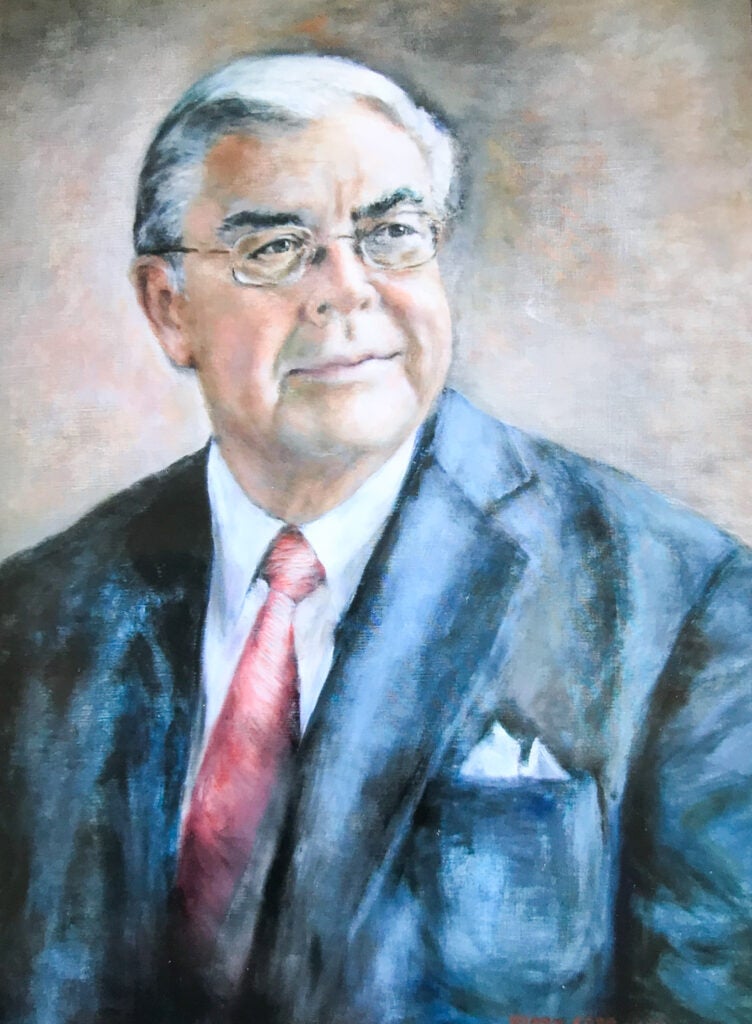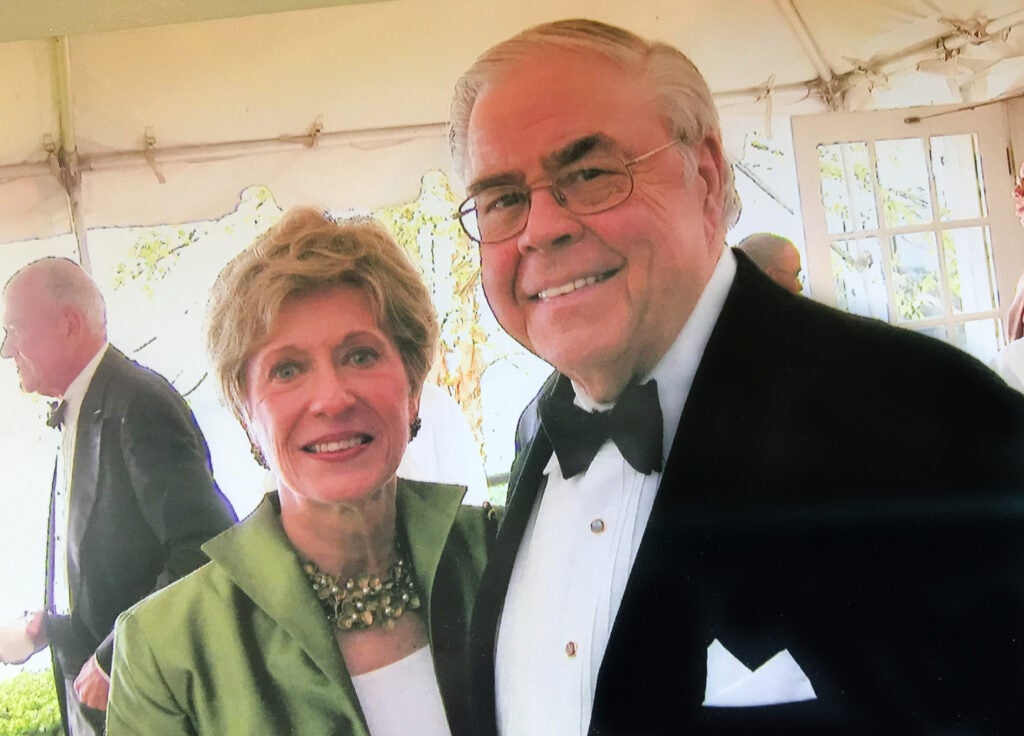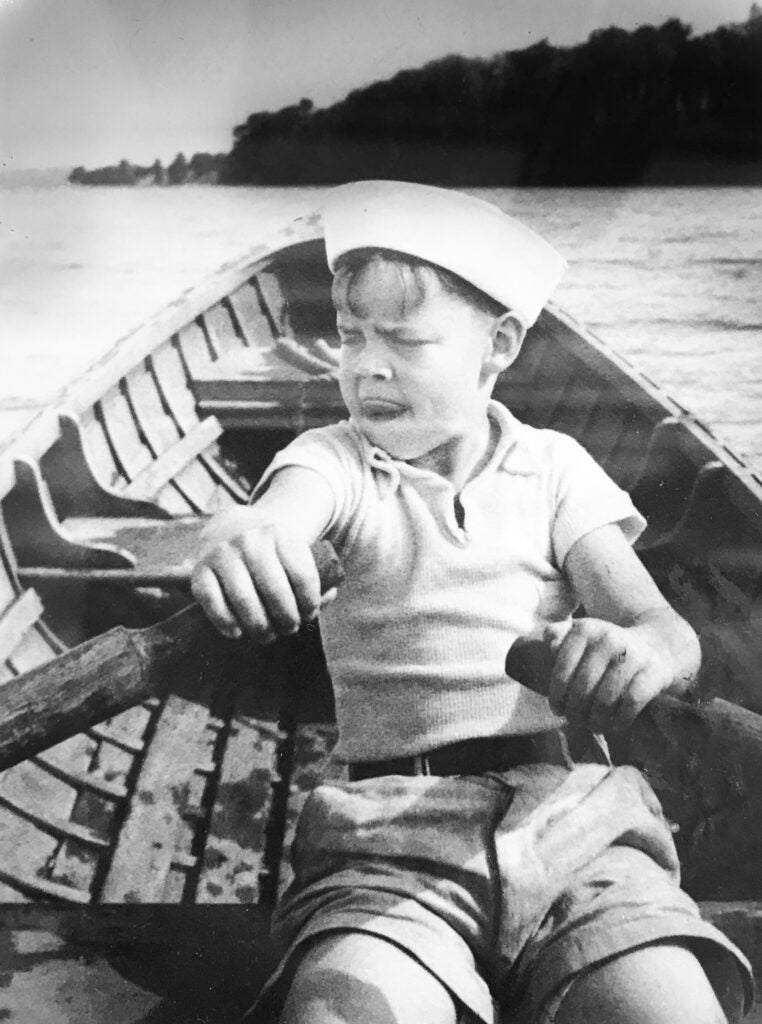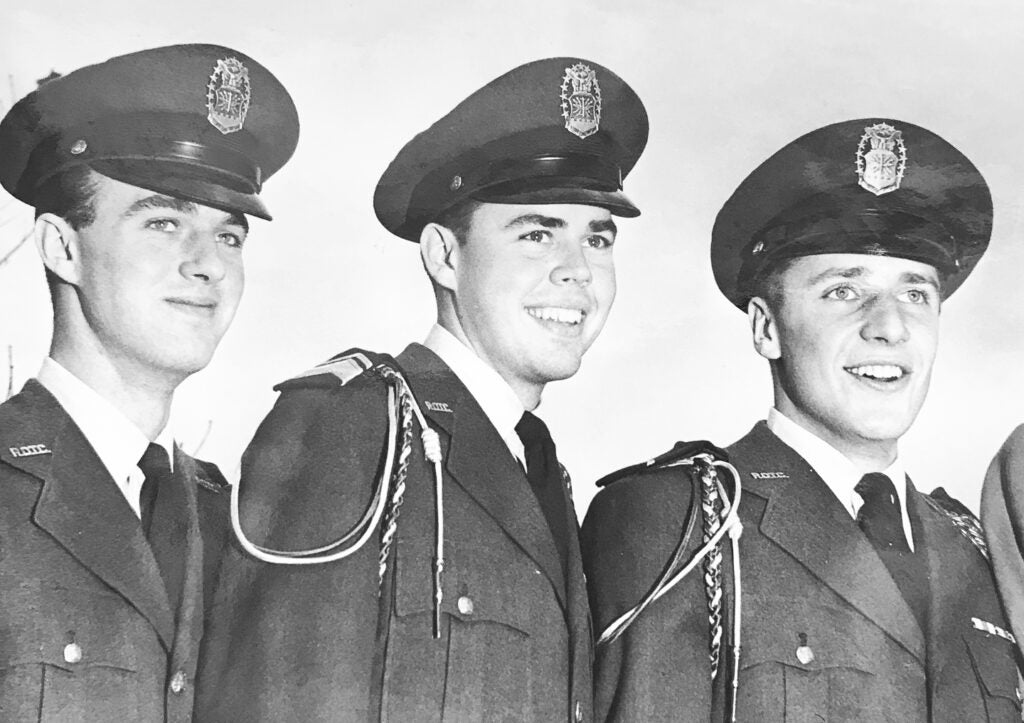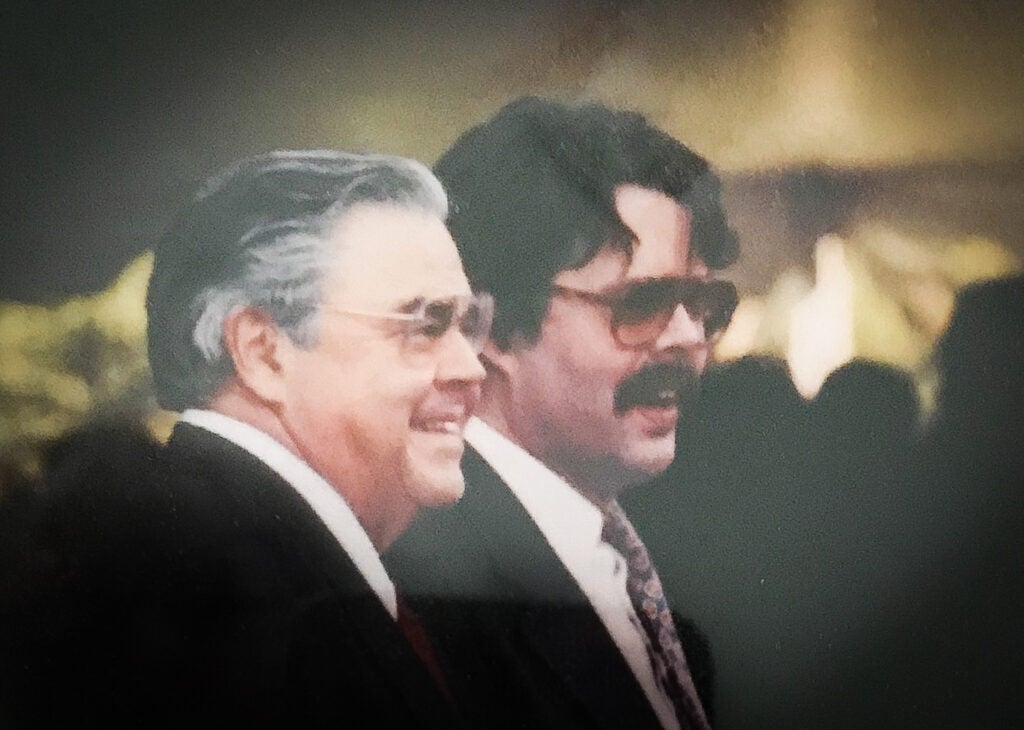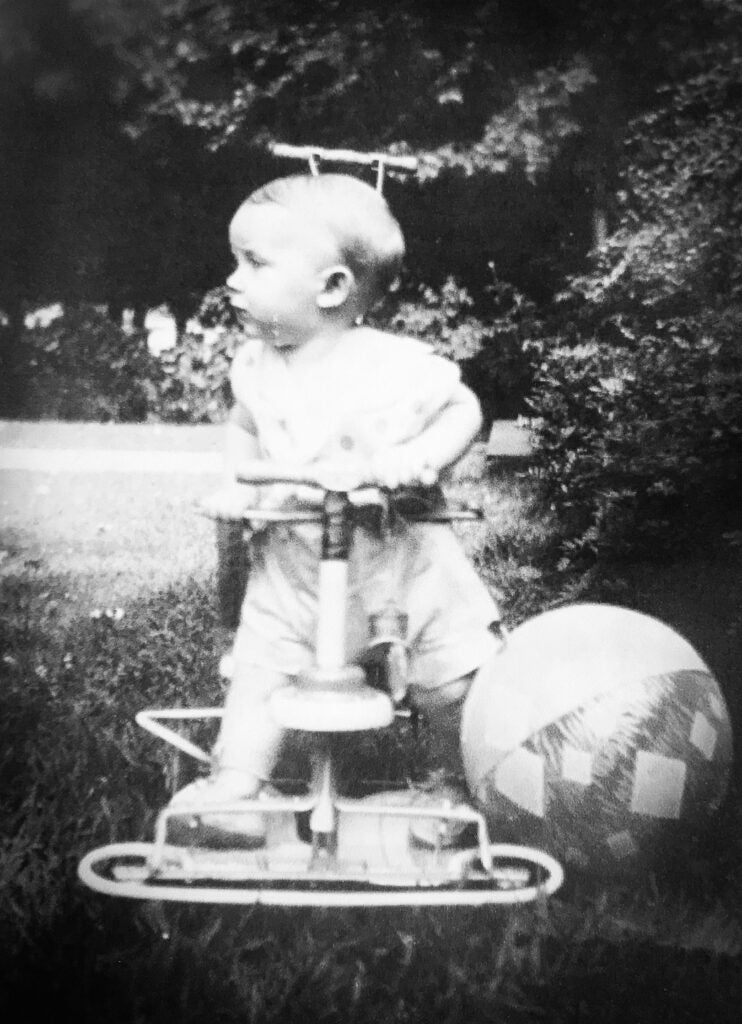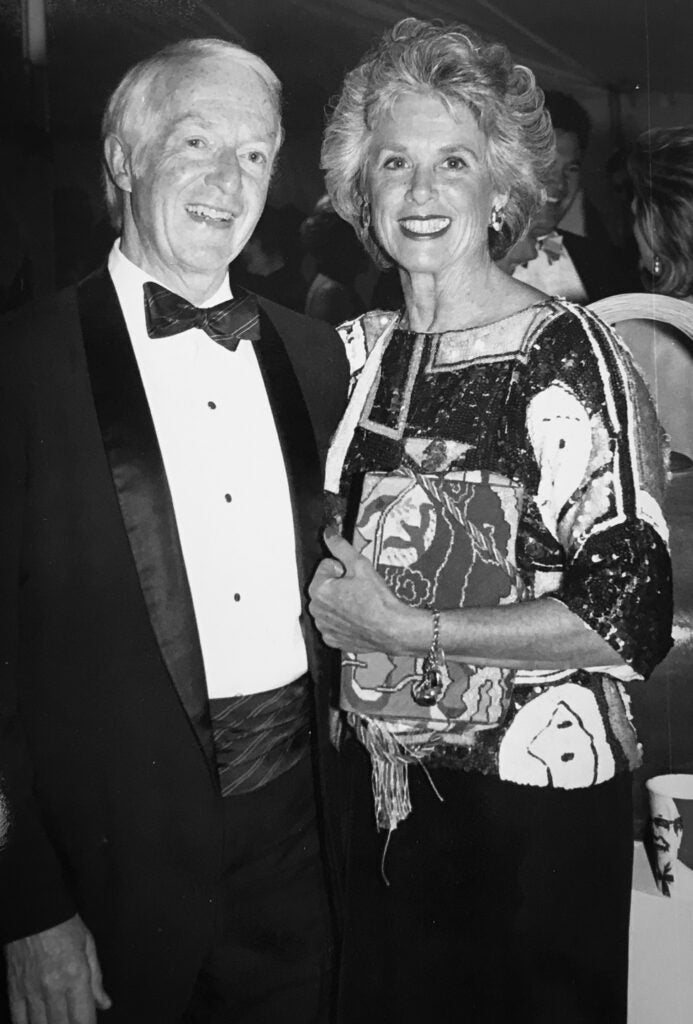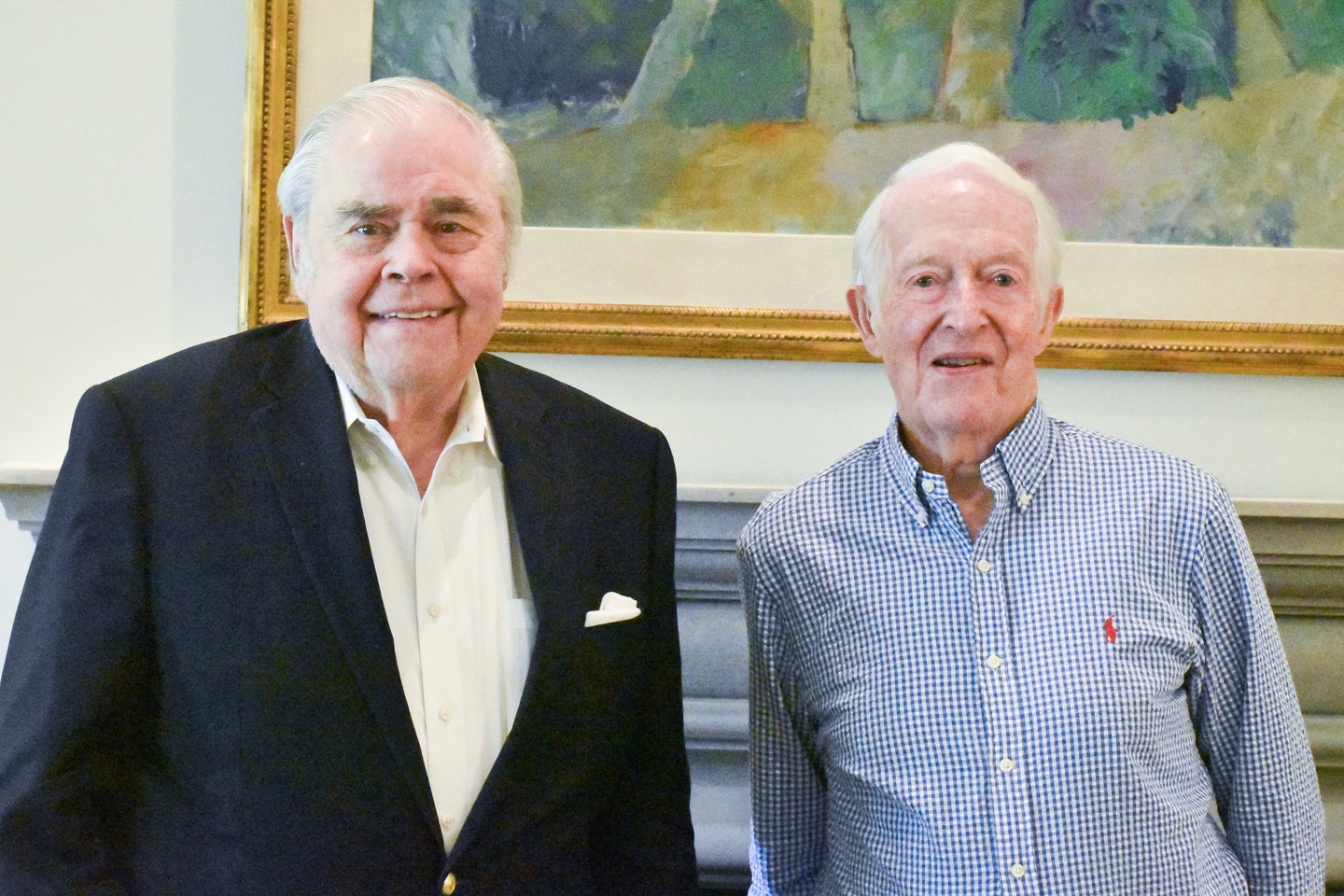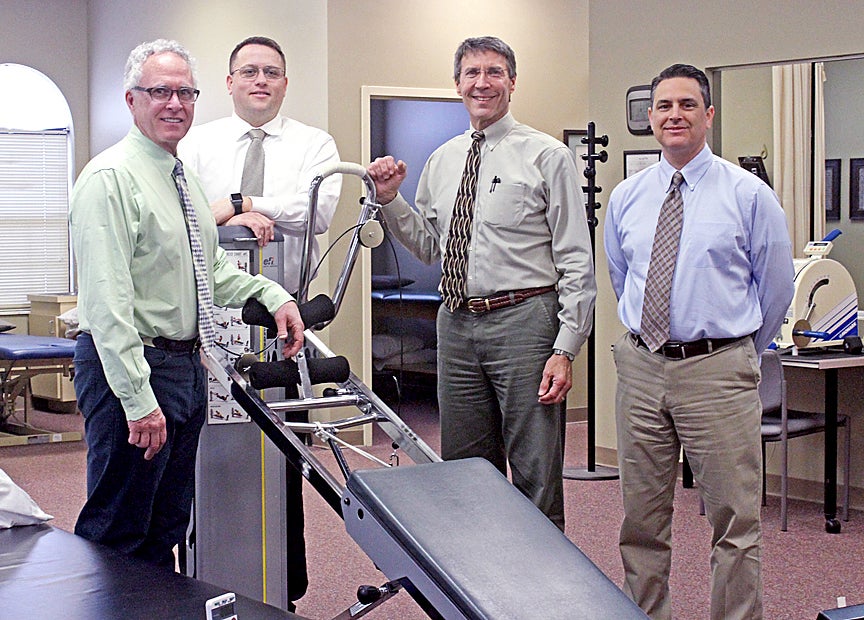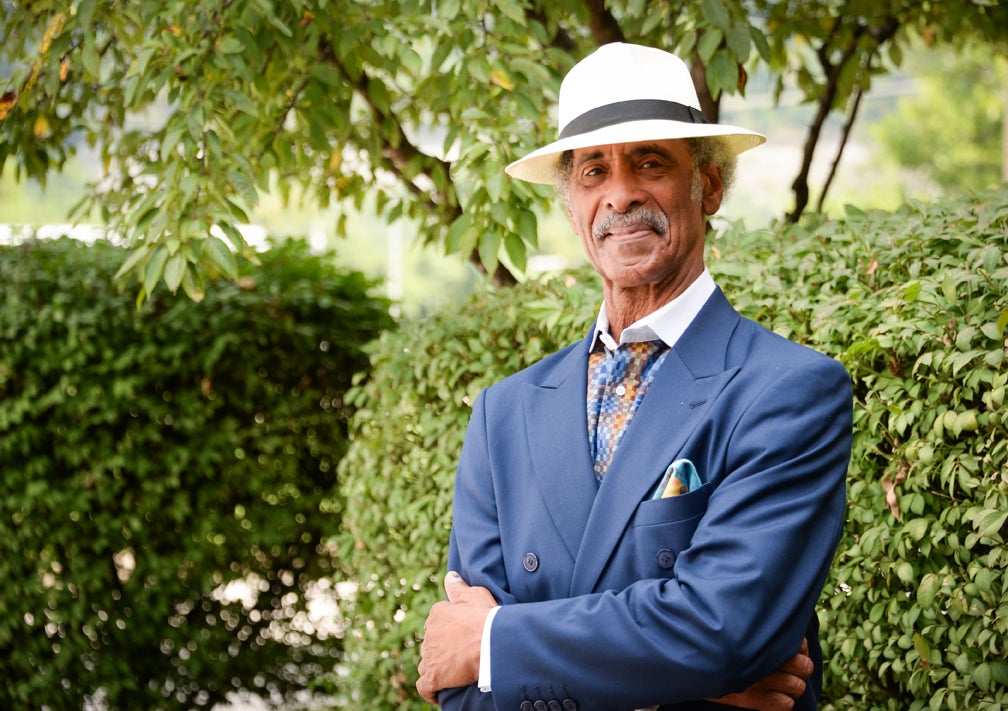Dr. William Ward has had a distinguished career in medicine, working with addiction and co-founding the Healing Place for recovering addicts in Louisville.
Bosworth Todd founded Todd Asset Management LLC and advocated for those suffering from mental illness, particularly schizophrenia, and he helped found Wellspring, a group home in Louisville for the mentally ill.
Before that, both men were paperboys for The State Journal in the 1940s.
The lifelong friends have been longtime residents of Louisville, but they remember their time in Frankfort fondly.
Ward, 92, and Todd, 91, went to school at Murray Street and Second Street. They both started high school at Frankfort High, but Ward moved after his freshman year and graduated from the McCallie School in Chattanooga, Tennessee. Todd is an FHS graduate.
One of Todd’s best memories came as his time as a paperboy was winding down.
“It was the last week I was delivering The State Journal, and there was a graduation dance,” Todd said. “I was dating Gov. Clements’ daughter. I had a friend who needed a date, and I set him up with Lt. Gov. Wetherby’s daughter.
“We stayed up all night, and it was time to deliver the paper. We went down the street with the governor’s daughter on the left (side of the vehicle) and the lieutenant governor’s daughter on the right (side). We hardly slowed down. We delivered 150 papers in 10 minutes up and down Shelby Street.”
Most delivery days weren’t quite so memorable. The pair delivered papers from 5:30-7 a.m. each morning and then went to school. The cost of the paper was 15 cents a week, and they collected from customers on Saturdays.
“We collected every week,” Todd said. “I got it changed to once a month, and that made it a lot better.”
“We delivered the Saturday Evening Post on Saturday afternoons,” Ward said. “You could win prizes like a football or baseball glove. It went out all over the United States.”
Then there was the Sunday Courier-Journal out of Louisville that was sold at the intersection of St. Clair and Main Street on Saturday nights.
“On all four corners there was someone selling the Courier,” Ward said. “There were people who would stay up until 10 and drive downtown to buy the Sunday Courier-Journal.”
And there were ways outside of work for them to pass the time.
“There was a carnival every summer on Holmes Street,” Ward said. “There were rides, snake handlers and strippers. The only way boys our age learned about the female anatomy was watching strippers at the carnival.”
Ward and Todd went their separate ways after Ward moved to Tennessee. Ward, whose grandfather was a doctor, received his undergraduate degree at Johns Hopkins University. He graduated from medical school at the University of Louisville and did his internship at the University of Pennsylvania and his residency at the University of Michigan.
After a stint in the Air Force, Ward returned to Louisville in 1960.
Todd, after graduating from Frankfort, went to the University of Kentucky and Harvard University business school.
Both men became advocates for helping others.
“I was in internal medicine, and the last 20 years was in addiction medicine,” Ward said. “It’s a full fledged medicine, like cardiology.”
He was a founder of The Healing Place in Louisville, which has a nationally recognized drug and alcohol recovery program.
His work started in the late 1970s when a colleague suggested they go to a medical clinic run by Father John Morgan. When Morgan had to step aside because of health issues, Ward convinced doctors with the Jefferson County Medical Society to take over the Morgan House as a service project.
The physicians quickly realized how addiction was affecting those coming to the Morgan House, and the transition from shelter to addiction treatment program resulted in The Healing Place.
“We noticed that people who came to the shelter were basically back on the street after several months,” Ward said in an article in the March 2002 edition of Louisville Medicine. “That’s when we decided if we wanted to do anything about the problem of homelessness, we had to treat the basic disease of drug and alcohol addiction.”
Among the many honors Ward has received is the Jack B. Stith Volunteer Advocate Award, presented by Mental Health America of Kentucky, in 2007; the University of Louisville, School of Medicine, Alumni Service Award, in 1997; and the Ephraim McDowell Physician of the Year Award, presented by The Caritas Foundation, Louisville, in 2000.
He was named the YWC (Younger Woman’s Club) Citizens Laureate, recognizing exemplary service to the Louisville community, in 1999, and the Will W. Ward, M.D. Clinic at The Healing Place was dedicated in 2003.
“I think Will is the consummate blend of a good person and an outstanding physician,” said Dr. Burns Brady in a story appearing in the Healing Place News in Spring 2008.
Todd’s work in mental illness began in July 1975, when his oldest son, Sam, was hospitalized at the Norton psychiatric ward and diagnosed paranoid schizophrenic. That began a cycle of repeated hospitalizations, and Todd and his wife, Joan, began meeting with other families of people with mental illness.
In April 1980, Todd testified before the U.S. Congress on the need for support for research and care for mental illness.
“I would like to make a plea for halfway houses for those mentally ill with schizophrenia in this country,” Todd testified. “A haven, hopefully temporary, between hospital and home … a residential and rehabilitation home with persons too sick to live on their own in the community but not requiring costly hospitalization.”
Todd ran into a neighbor, Phil Ardery, at a parents meeting in Louisville, and sent Ardery his congressional testimony.
Not long after that, Todd met with Ardery and Barry Bingham Sr. to describe the increasing need to support medical research, therapies, housing and care.
In late 1981, the three men co-founded the Schizophrenia Foundation Kentucky, creating Wellspring House, the first group home for people with schizophrenia in the Louisville area.
Katherine Graham, publisher of the Washington Post, hosted a luncheon in her office in July 1984. Those attending included Todd, Ardery and Bingham, along with others involved in mental health issues, including Dr. Herb Pardes, then chairman of the National Institute of Mental Health.
“There were 10 people who came,” Todd said, “and we started the (National Alliance for Research Schizophrenia and Depression a.k.a NARSD) that day.”
The NARSD is now the Brain & Behavior Foundation and it states on its website it has awarded more than $418 million to fund more than 6,000 grants to more than 5,000 scientists around the world since 1987.
Todd appeared in a PBS documentary in 2006 that told the story of how families ended stigma and drove major advances in mental health care in the United States.
In 2007, Todd’s son David joined Todd and Sue at the Brain & Behavior Foundation’s annual fundraiser banquet at the Waldorf Astoria in New York.
“I stood beside Dad as he chatted with Dr. Pardes at a gathering before the formal dinner,” David Todd wrote. “They reminisced about their work in the early days and mentioned Phil and Barry. I blurted out, ‘Phil Ardery is my hero.’
“Dr. Pardes turned his brilliant gaze on me and smiled, ‘Actually, I think your father should be your hero.’
“Afterward, we sat listening to Dr. Pardes give his formal remarks from the podium to the several hundred attendees gathered in the banquet hall. He cited Bosworth Todd twice, both at the start and the conclusion of his address, as if (or so I might imagine) to make sure I got the point.
“I did.”
